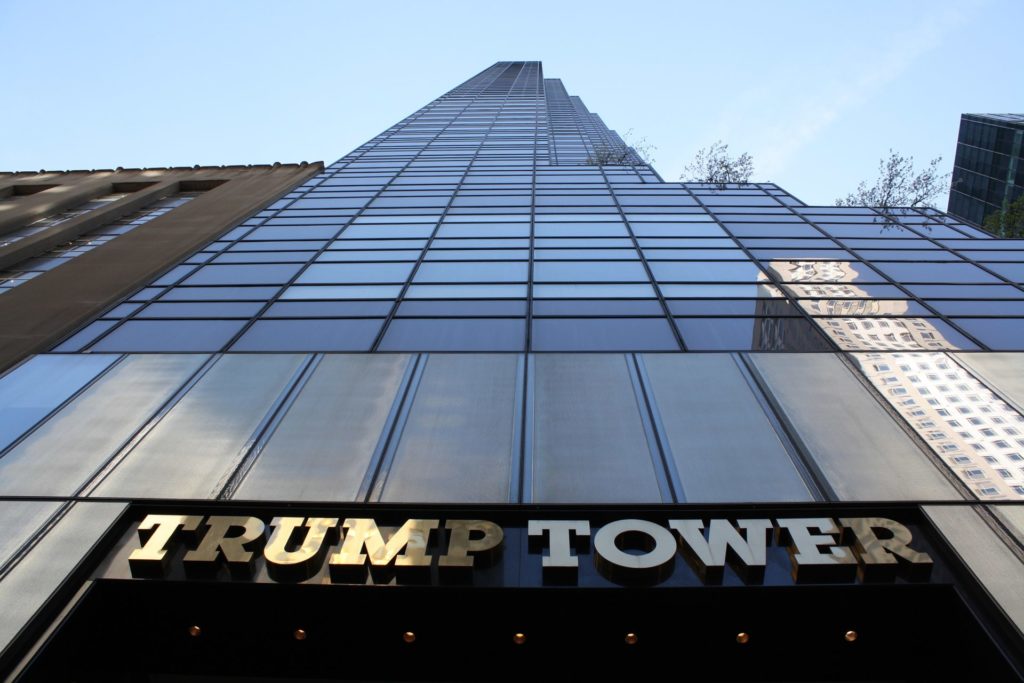Congress Writes Lax Laws, Making It Even Better to Be Really, Really Wealthy
The rich aren’t like you and me, at least not when it comes to being taxed. Thanks to Congress, we have two income tax systems, separate and unequal. One is for workers. The other is for business owners with extra favors for real estate investors.
Last week we examined one aspect of federal tax unfairness, how earning today and then delaying payment of taxes for decades converts the burden of the federal income tax into a profit center.
This week we’ll look at another aspect of unfairness – unverified income.
Congress doesn’t trust you and others who labor, whether as ditch diggers or CEOs. Congress requires your employer to tell the IRS exactly how much you are paid and to withhold your income, Social Security and Medicare taxes before you get the money you earned. Your bank reports interest earnings of more than $10 per year. Your mutual fund or stockbroker do the same for dividends and capital gains.
The opportunities to cheat are especially easy and hard to detect for those in real estate, especially on an international scale. If Donald Trump comes to mind you’ve got the picture.
Business owners are an entirely different story. Congress trusts them.
Instead of verifying their incomes and withholding taxes up front, Congress trusts these Americans to scrupulously tell the Internal Revenue Service about every dollar they earn. And it doesn’t require them to pay their taxes right away, either, although there are some rules on paying taxes every 90 days. Those rules are easily skirted by those business owners who also draw a salary, have a spouse who does or who report less than their actual income.
You’re Scrutinized, Your Boss Isn’t
If workers underreport their income, the IRS knows. It just compares what’s on your tax return to the W-2 your employer sent to our government. So too for the 46 states with income taxes, all of which share information with the IRS.
But a business owner runs only a small risk of detection for underreporting. And the opportunities to cheat are many; it is especially hard to detect for cheating in real estate, especially on an international scale. If Trump comes to mind, you’ve got the picture.
Tax cheating in real estate is easy because, unlike the way paychecks are reported, there is no national computer system that gathers real estate information and notifies the IRS. Investigations into real estate tax dodges are rare. There are records of real estate sales, but matching them to tax returns is an arduous process. It is unlike the automated system for wages, interest, dividends and, in recent years, stock market capital gains.
Properties for Money Laundering

Five years ago in Newsweek, I was the first journalist to show that around the world wealthy people were parking money in apartments, many of which came with special deals so little property tax was due. Buying apartments is a smart way to hide and launder money, whether in New York, San Francisco, Melbourne, Singapore or Paris. And the risk that income tax authorities will poke into your affairs — about the same as the sun rising in the West tomorrow.
A similar issue arises with the art and collectibles markets. For years, prices have been rising much faster than inflation or the global economy.
A big reason is that these markets are unregulated and records are skimpy. That makes them near perfect for evading taxes, money laundering and hiding wealth. That’s the premise of Riviera, the artsy Amazon Prime dramatic series starring Julia Stiles.
Much of the art and collectibles from Old Masters to Rauschenbergs and Bugattis to 17th century Stradivarius violins are stored in massive underground vaults in the United States, Switzerland, Singapore and other jurisdictions known for being friendly to tax cheats. No one is enjoying these creations, but you are paying to keep them in dark, air-conditioned rooms by bearing the taxes the owners evade.
IRS Barred from Investigating
Congress has taken steps to make sure people who use the art, collectible cars and real estate to launder money and take untaxed profits won’t get pinched by our tax police. Congress took away much of the authority IRS agents had to investigate people based on obvious discrepancies between the income on their tax return and their lifestyle.
Years ago a just-retired IRS agent told me a story about the value of such audits. While training a recruit agents were randomly assigned to inspect the books of a Manhattan diner. Everything appeared to be in order. The man’s modest income on his tax return pretty much matched his business records.
But as the agents walked out they noticed a flashy European car pull up. A woman in a sable coat and diamonds got out, walked past them into the diner and embraced the owner. The agent took down the license plate and started digging, turning up a mansion in the suburbs, a yacht and other signs of a lifestyle that cost many multiples of the reported income.
‘Thanks, Sen. Roth!’
Today that agent would probably be stopped. Why? Because of the IRS Restructuring and Reform Act of 1998. While Congress didn’t outright ban so-called “lifestyle audits,” it did make such inquiries difficult to justify so they have largely faded away.
Audits began fading after Ronald Reagan left office, and the trend accelerated after 1997 and 1998 hearings by Sen. William V. Roth Jr. (R-Del.) investigating supposedly zealous IRS agents who harassed decent taxpayers.
The stories the witnesses told were horrific. The testimony was also one-sided because Roth, best known as the father of the tax-free Roth IRA, knew that by law the IRS could not respond. The TV networks, big newspapers and magazines all lapped it up.
After the hearings, Tax Notes Magazine, The Virginian-Pilot newspaper, The Wall Street Journal and I in The New York Times showed that the testimony was self-serving nonsense that bore little resemblance to the facts. That didn’t make the networks, magazines or much else.
That 1998 law should really be called the Tax Cheats Relief Act of 1998.
Tax Gold in Real Estate
 There are obvious ways that penny-ante operators chisel on their taxes. There are mom-and-pop retailers who don’t ring up every cash sale, for example.
There are obvious ways that penny-ante operators chisel on their taxes. There are mom-and-pop retailers who don’t ring up every cash sale, for example.
But the big tax money is in real estate.
I have held in my hands papers showing the transfer of roughly a billion dollars worth of real estate from one generation of a family to the next between 10 a.m. and 2 p.m on a single day. The parents acquired the property in the 1950s so huge capital gains are built in. The tax upon sale would easily be north of $100 million.
If the property were a gift to descendants then gift tax would be owed, also north of $100 million.
I saw proof that the IRS knows neither tax was paid. But the service has done nothing to enforce the law against the parents, who possibly were valuable intelligence assets during the Cold War.
This failure to enforce the law is as much a scandal as the IRS dropping its criminal investigation into at least $100 million of untaxed annual income flowing to one of the Koch brothers, as DCReport revealed in 2019.
Audit Poor People Instead
What the IRS has done, as directed by Congress, is to intensify audits of the poor. One in three households with income of less than $25,000 is audited at nine times the rate for the 24,300 households making $10 million, as DCReport showed in October.
For the rich real estate family, there is even better news than super-low audit rates.
Congress, in a further sign that while it doesn’t trust workers it does trust business owners, put in place a rule requiring the IRS to challenge any transfers of property within three years. If the IRS doesn’t audit within that tight window of time then the gift tax return is accepted as filed even if our government was shorted $100 million.
This short time limit is absurd and undemocratic because an IRS study early in this century found that undervaluing gifted real estate is endemic. In some states, every large gift tax return audited showed significantly undervalued property.
In contrast, the working poor get a harsh deal. If the IRS determines that they made a simple math error they can be barred for two years from the Earned Income Tax Credit, America’s major program to help impoverished children. If something worse is found the bar can last a decade.
Double Standards
That’s two standards of justice separate and unequal, one is for rich real estate families, the other for the families who cut the grass and take out the trash in their buildings. But don’t expect a 14thAmendment challenge in court to succeed.
That’s because our Constitution gives Congress virtually free rein to tax. Indeed, tax lawyers refer to tax favors as almost religious in nature—“given by the grace of Congress.”
Audits of business owners are slowly fading away. In the last two decades, Congress has pared, trimmed and ultimately slashed the IRS budget for tax law enforcement. When economic and population growth and inflation are taken into account the IRS has been cut in half since the turn of the century.
The rate of audits is down and so is the amount of time spent on audits. Years ago some IRS wags saw this trend building and came up with a metaphor to the marketing of watery low-calorie beer. They started referring to the IRS policy of “audit lite.”
That term may need updating. Unless the IRS gets a bigger budget and unless Congress stops some of these unwarranted favors for rich tax evaders, tax cheats who own their business, invest in real estate or traffic in art can look forward to a future that’s audit-zero.
Featured image: Wealthy, tax-advantaged auto collectors gather annually at the Concours d’Elegance in Pebble Beach, Calif., to buy, sell, swap or simply ogle rare, expensive cars like this vintage Bentley. (Concours d’Elegance)





